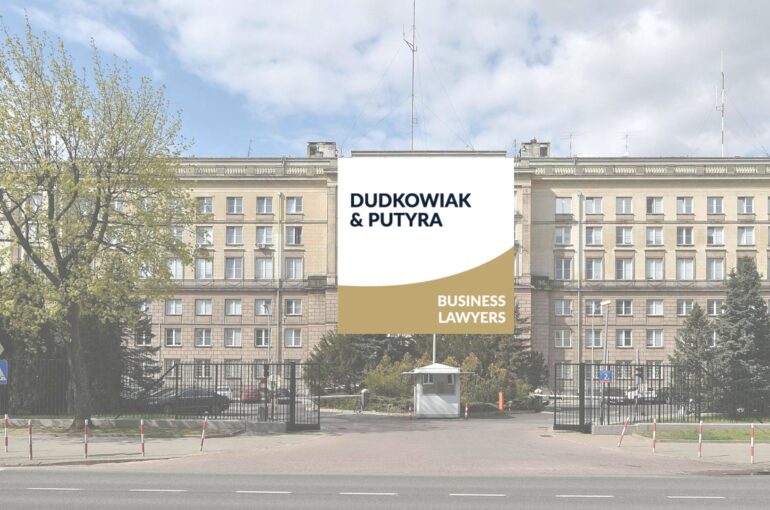Proceedings in intellectual property cases. New regulations
On July 1, 2020, Article 1 shall enter into force. 47989-479129 of the Code of Civil Procedure, which regulates separate proceedings concerning intellectual property.
These provisions apply to cases concerning protection of copyright and related rights, protection of industrial property rights and protection of other rights on intangible assets (intellectual property cases), which are also cases concerning
- preventing and combating unfair competition,
- protection of the rights of the personality in so far as it concerns the use of the personal good for the individualisation, advertising or promotion of the trader, goods or services,
- protection of personal rights in connection with scientific or inventive activities
Intellectual property cases will only be dealt with by District Courts. On the other hand, the Regional Court in Warsaw will have exclusive jurisdiction in intellectual property cases concerning computer programs, inventions, utility models, topographies of integrated circuits, plant varieties and secrets of a technical nature.
Due to the specific and complicated nature of intellectual property cases, the legislator decided to introduce special provisions concerning securing evidence, disclosing or issuing a measure of evidence, providing information and the so-called right of access. special actions.
The court shall grant security for the measure of inquiry upon application by the right holder who has made the claim as well as the interest in the security. There is a legal interest in securing the measure of evidence where the absence of the requested security prevents or seriously impedes the citing or proving of the relevant facts, and where there is a risk of destruction of the measure of evidence or a delay in obtaining the measure of evidence may prevent or seriously impede the attainment of the objective of the taking of evidence, or where, for other reasons, there is a need to establish the facts.
In the order freezing an item of evidence, the court shall specify the extent to which the person entitled to the item of evidence to be frozen has access to it and the detailed rules for the use and inspection of the item of evidence. The court may limit or exclude the copying of the evidence or its recording in any other way. The rightful owner shall have access to the evidence together with the decision becoming final.
The General Court shall decide how to secure the evidence as it deems appropriate in the circumstances of the case. The means of security shall be, in particular, the receipt of goods, materials, production or distribution tools, documents, as well as the drawing up of a detailed description of these items combined, if necessary, with the taking of samples.
In a case of an infringement of an intellectual property right, the claimant who has made the claim plausible may require the defendant to disclose or give evidence at his disposal, in particular bank, financial or commercial documents, which serve to disclose and prove the facts.
Upon request, the court shall specify the time limit for the disclosure or issue of the evidence, the rules for the use and consultation of the evidence, and shall instruct the parties on the protection of business secrets. Where the defendant invokes the protection of business secrets, the court may lay down specific rules on the use and knowledge of the evidence and may impose additional restrictions.
At the request of the right-holder, if the right-holder provides reliable evidence of the infringement, the court may, before or during the commencement of the infringement proceedings or until the conclusion of a hearing at first instance, call upon the infringer to provide information on the origin and distribution networks of the goods or services, if this is necessary to pursue the claim.
The General Court shall, taking into consideration the request, determine the period within which the information is to be provided, its nature and extent, as well as the rules for the right holder to acquaint himself with it. The information is provided on pain of criminal liability
A counterclaim in cases of trade mark or design infringement shall be admissible if it includes a request for a declaration of invalidity or revocation of a trade mark or includes a request for a declaration of invalidity of a registered design. The above provision shall apply accordingly to the request for invalidation or revocation of the right of protection for a common trademark, the common right of protection for a guarantee trademark, the recognition of international trademark protection in the territory of the Republic of Poland, as well as to the request for invalidation of the recognition of international industrial design protection in the territory of the Republic of Poland.
In addition, the claimant may bring an action to establish that the actions he has taken or intends to take do so do not constitute an infringement of a patent, supplementary protection right, right of protection or registered right. Then, for such matters, the provision of art. 189 c.c.p. shall apply accordingly.


